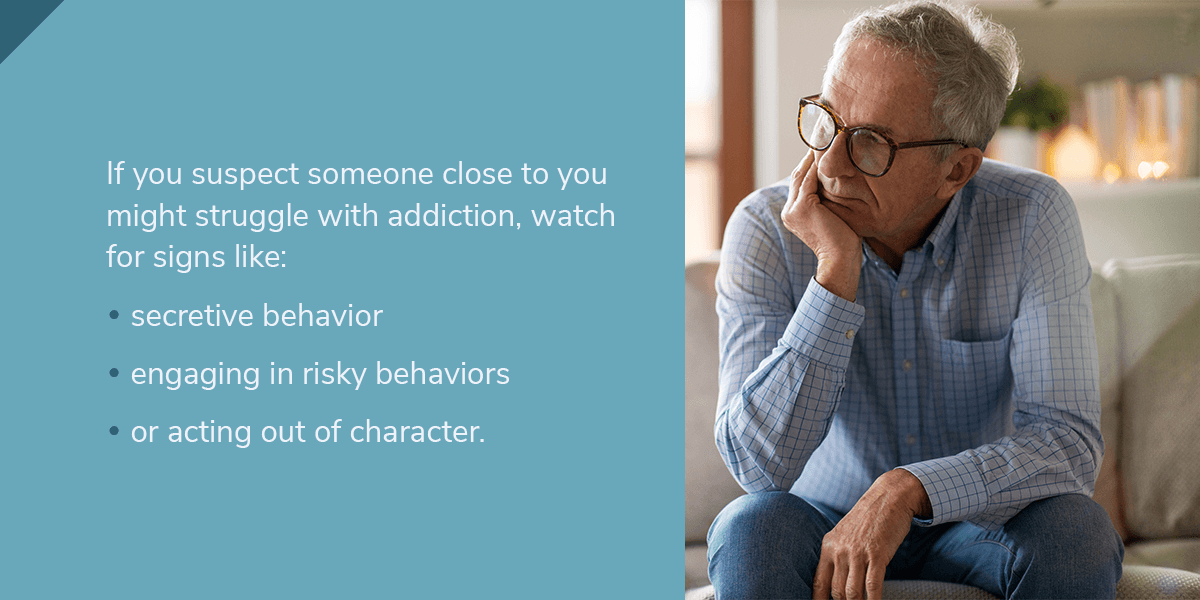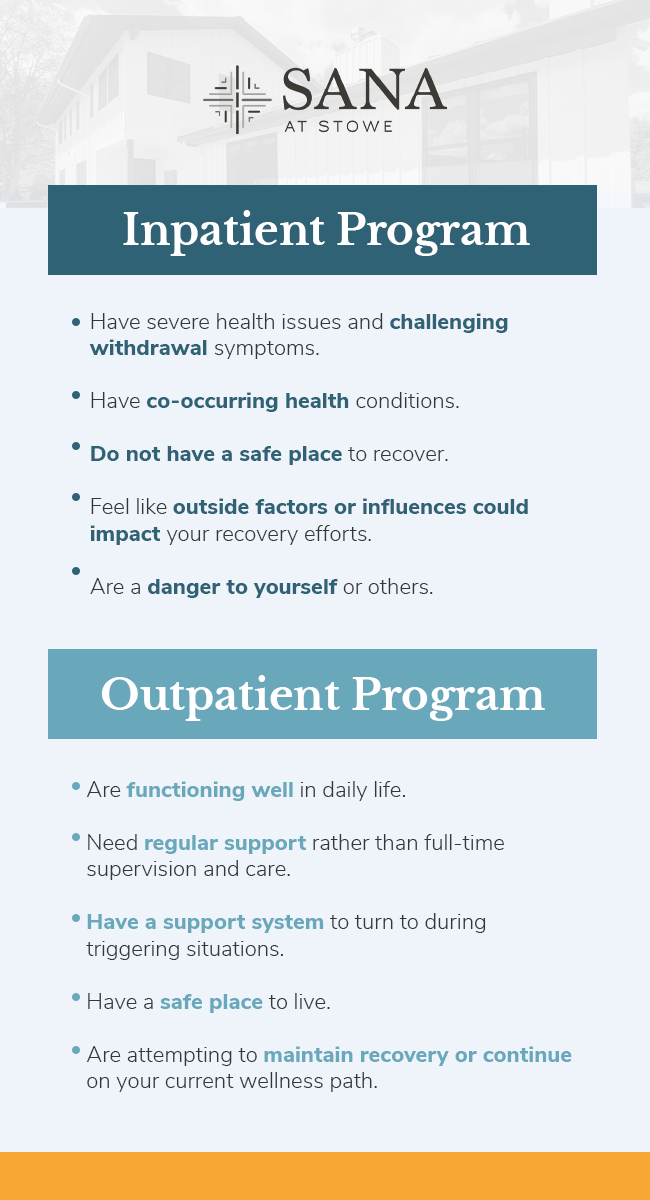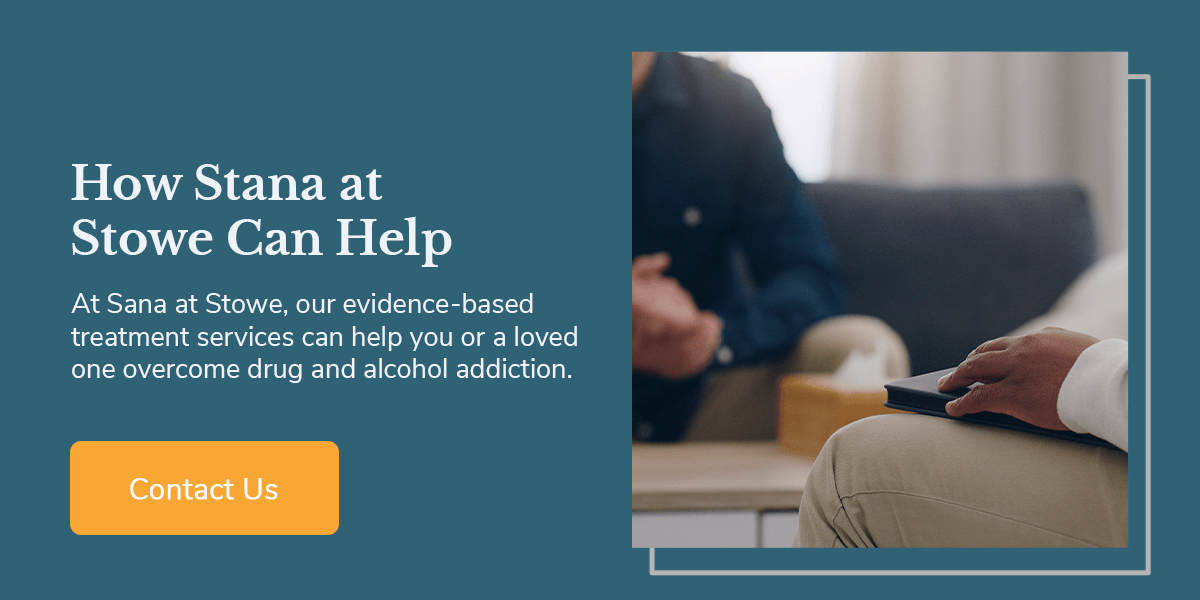Substance use disorder is a complex condition that requires comprehensive, sustainable, long-term care. If you struggle with addiction, treatment will help you determine the root cause of it and heal from the effects. You’ll work with professionals to challenge destructive thoughts and behaviors while gaining essential coping skills to help you through life.
While it can be challenging to determine the best treatment option, considering a few factors can help you narrow down your options and start healing. Read on to learn more about different types of addiction treatment and how to take the first steps toward a healthy, substance-free lifestyle.
Download the Full Guide to Addiction Treatment
What Is Substance Use Treatment?
Substance use disorder treatment is the process of caring for addiction with the primary goal of immediate and future sobriety. Treatment can take several forms, from detox and prescribed medications to evidence-based therapies. Programs can consist of different approaches, individualized and adjusted throughout the treatment process to help meet your unique needs.
Many types of professionals provide substance use treatment. Most programs consist of a team specially trained, certified or licensed as substance use treatment counselors, including social workers, counselors, doctors, nurses, psychiatrists, or psychologists. After an assessment, the program team will work with you and other important people in your life to implement the treatment plan.

Understanding Treatment Options
Substance use treatment typically falls into residential or outpatient care, meaning you stay at the treatment center or attend programs during the day before returning home at night. Since addiction is a chronic condition, treatment plans recognize the potential for recovery and relapse, making continuing care crucial to long-term success. In many cases, individuals with addiction have co-occurring mental health conditions and must treat them simultaneously.
Here’s a breakdown of the care levels and evidence-based addiction treatment options you might consider:
Detox Programs
Detoxification is the first step in preparing for treatment, involving removing the specific substance from your body. Addiction can condition your brain to believe it needs the substance to survive. By limiting the use of a specific substance, you can start developing serious withdrawal symptoms, which is why many people relapse when attempting to reach sobriety.
It’s crucial that you seek professional treatment to withdraw from substances safely. In medically assisted detox, you can receive certain medications that help curb or reduce withdrawal symptoms like body aches, pain, and nausea. Detox and withdrawal management can help clear your body of substances so you can focus on the recovery process.
Residential Treatment
Residential treatment or inpatient care consists of 24/7 addiction support. This form of treatment is for anyone who wants or needs full-time mental health or addiction assistance, with structured programs that might include detox, individual and group therapy, and support groups.
Residential care is ideal if you desire to remove yourself from daily life to focus solely on your recovery, with programs typically lasting a few weeks to a few months. In residential treatment, you’ll typically work with a team of therapists, doctors, nurses, psychiatrists, or psychologists.
The 24/7 support, monitoring, and community in residential treatment centers can provide a safe space to help you heal.
Outpatient Treatment
Outpatient treatment programs are ideal for anyone who doesn’t need 24/7 care but still needs a level of care that’s more intensive than individual therapy. This level of treatment involves receiving treatment daily or multiple times a week while returning home at night. While less intensive than residential treatment, outpatient care still offers comprehensive mental health services, from individual and group therapy to medication management.
Outpatient programs can be called various names based on the hours someone is in programming, including partial hospitalization programs (PHP) or intensive outpatient programs (IOP):
- Partial hospitalization programs (PHP): For anyone just starting recovery or transitioning from residential care, PHP is often the first step. Treatment might be held daily or multiple times a week while returning home at night or living in the center’s provided housing. Different types of health care providers, like therapists and psychiatrists, lead these structured programs. Depending on your symptoms, you might spend weeks to months in a PHP program.
- Intensive outpatient programs (IOP): Like PHP, intensive outpatient programs allow you to attend treatment sessions during the day and leave at night. However, these programs are typically less time-intensive than PHP. They are also recommended for those who require ongoing care but who have a stable place to live and a solid support system.
Overall, outpatient treatment is for anyone with addiction or mental health challenges who can function in their daily lives and have a strong support system. People in outpatient treatment might choose to live in a sober living home and attend sessions that fit their unique needs, but they do not live in a treatment center.
Individual Therapy
Individual therapy involves meeting one-on-one with a mental health professional. In therapy, you can work with your therapist to establish treatment goals and discuss how to meet those goals. Individual addiction therapy often starts with determining the root cause of the disorder — typically an unprocessed trauma or another mental health condition like depression or anxiety.
After determining a cause, therapy focuses on processing and coping with the trauma, changing your relationship with substances, and motivating yourself to stay substance-free. Individual therapy might also focus on learning skills to repair relationships, build friendships, and create healthy boundaries. You might also develop life skills to manage stressors and situations to help you through recovery.
The most common types of individual therapy used to treat addiction include cognitive behavioral therapy (CBT) and dialectical behavior therapy (DBT). In both types of treatment, you work to understand your thoughts, actions, and behaviors and how to change them. Individual sessions occur regularly, such as weekly or once a month, to manage symptoms and work toward goals.
Group Therapy
Group therapy or group counseling is often provided in residential or outpatient programming within a treatment center, or it can be found at a community counseling center. In group therapy, you are encouraged to support your peers as you work individually toward a substance-free lifestyle. A qualified mental health professional leads the group, encouraging each member to share their experiences, setbacks, and goals.
Group therapy for addiction can help people see that they are not alone and that others share similar struggles. Peers can provide accountability while offering practical advice along the way. Learning from and encouraging one another can help you stay focused and motivated toward recovery.
Support Groups and 12-Step Programs
Support groups and 12-step treatment programs help many people successfully overcome substance use and stay sober. People in these programs meet in various locations, with programs becoming part of their regular routines. Most 12-step programs are similar in that they acknowledge the power of addiction while realizing help is needed to achieve recovery.
In 12-step groups, members have sponsors that work with them toward success. These sponsors are program alumni who once used the 12 steps to overcome addiction and are now guiding new attendees. Support groups or 12-step treatment programs are ideal for anyone hoping to continue their recovery following a more intensive program that needs accountability to continue a substance-free life.
Finding the Right Treatment for You
With so many treatments, choosing the right program for your needs can feel daunting. However, discovering the best treatment center and program for you or a loved one is vital to the program’s success. Here are a few factors you can consider when choosing the proper treatment and taking the first step toward recovery:
Inpatient vs. Outpatient Program
The first step in deciding on the treatment program is whether you need inpatient or outpatient care. Consider your current lifestyle, health, and how much oversight you need to stay sober. You might choose inpatient care if you:
- Have severe health issues and challenging withdrawal symptoms.
- Have co-occurring health conditions.
- Do not have a safe place to recover.
- Feel like outside factors or influences could impact your recovery efforts.
- Are a danger to yourself or others.
At the same time, an outpatient program might be best if you:
- Are functioning well in daily life.
- Need regular support rather than full-time supervision and care.
- Have a support system to turn to during triggering situations.
- Have a safe place to live.
- Are attempting to maintain recovery or continue on your current wellness path.

Holistic Approach
It’s essential that you choose a treatment center that offers a holistic approach. Holistic addiction treatment addresses all aspects of a person’s addiction and well-being, with programs focusing on healing the mind, body, and spirit. A holistic, comprehensive approach can help you recover from the effects of addiction and maintain a healthy lifestyle.
Trauma-informed therapy is often a crucial aspect of holistic treatment programs, where understanding the impact of trauma on your life and decisions is critical to recovery. Other approaches include exercise, art therapy, mindfulness practices, and nutrition.
Evidence-Based Treatment
When searching for a treatment center, look for a place that offers evidence-based treatment modalities. These are scientifically proven to help people heal from substance use disorder. Therapies for addiction should address the condition’s root cause, not just treat symptoms.
Evidence-based addiction treatments involve programs that take a comprehensive approach to medical, clinical, and therapeutic services. Programs might include group and individual therapy, support programs, experiential therapies like music therapy, or other evidence-based treatments like CBT or eye movement desensitization reprocessing (EMDR).
Qualified Professionals
When looking for a treatment program, assessing the provider’s qualifications is critical. Programs with qualified mental health professionals capable of developing the right treatment plan for you are vital to your healing and recovery. Ensure that your chosen treatment center comprises qualified, highly-trained staff, including expert mental health professionals, nutritionists, and holistic healers.

Dual-Diagnosis Treatment
It’s common for substance use disorder to exist with other mental health conditions. Approximately 21.5 million adults in the U.S. have a co-occurring disorder. When you have a co-occurring condition like depression or anxiety, it’s crucial that you find a dual-diagnosis treatment program to address both conditions simultaneously. This integrated approach helps you heal from all aspects of your condition.
You’ll identify the underlying causes of co-occurring conditions and develop a solid plan for long-term recovery. Treatments might involve prescription medications, behavioral therapies, and other treatment modalities to help you recover and face future challenges with a lower risk of relapse.
Financial Considerations
Treatment costs can be a barrier for many people. As such, you might consider whether the treatment center accepts your insurance or offers payment plans. It’s best to choose a center that is transparent about cost and insurance coverage so you can make the best decision for yourself or your loved one’s needs.
Ongoing Support
Recovery is a life-long process, and the right treatment program should include continued care to help you maintain a substance-free lifestyle. Aftercare programs might consist of community and 12-step support, coping tools, and access to mental health resources. In some cases, treatment centers might also help you find a job and sober activities like fitness classes. With adequate aftercare support, you can continue your journey to healing.
How Stana at Stowe Can Help
A comprehensive, holistic approach is crucial to effective substance use treatment. While there are many options out there, it’s critical that you find a place that takes a whole-person approach, offering programs like detox, evidence-based therapies, and support groups. At Sana at Stowe, our evidence-based treatment services can help you or a loved one overcome drug and alcohol addiction.
Our team understands that addiction recovery is a lifelong journey, which is why we build individualized treatment programs that promote long-term recovery. We also understand that it takes an integrated approach to treat addiction and co-occurring conditions, and we offer dual-diagnosis treatments to address these conditions simultaneously. Amenities include meditation spaces, a sauna, tennis courts, and an on-site chef.
If you or a loved one is struggling with addiction, understand that help is available. Our team of treatment professionals can answer any questions you have about our services. To start your recovery, contact us today.
Sana is Here to Help
Sana is here for you and your loved ones. Sana at Stowe provides high-quality treatment for those struggling with substance abuse, alcohol addiction, trauma, and PTSD. Our compassionate and professional staff is dedicated to giving our patients the recovery experience they deserve in a safe and healing environment. To learn more or to get started on your journey to recovery today, give us a call or visit our contact form.
Click here to call us: 866-575-9958




